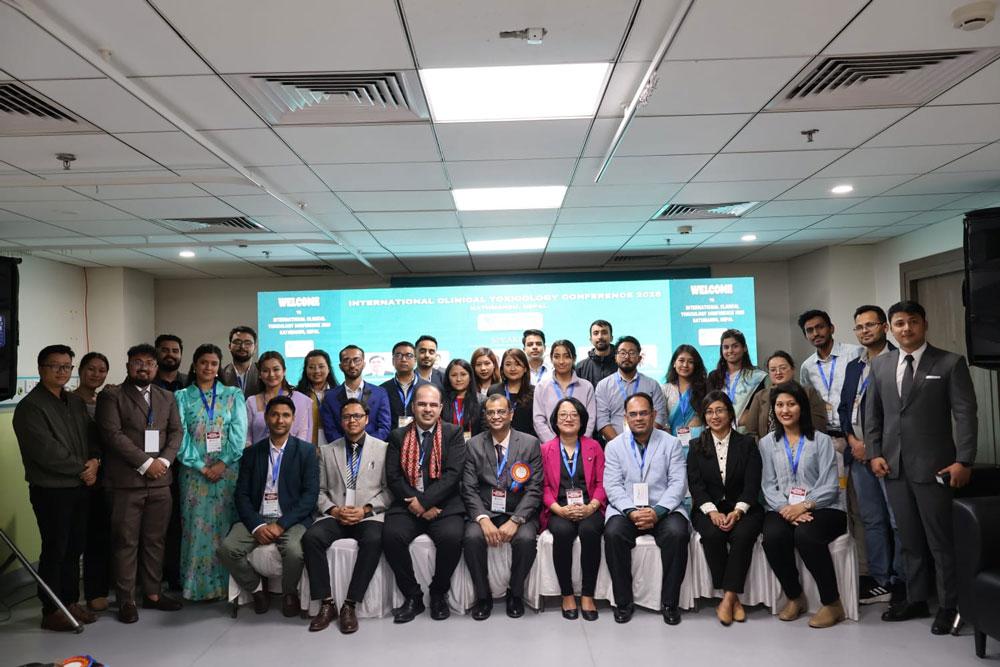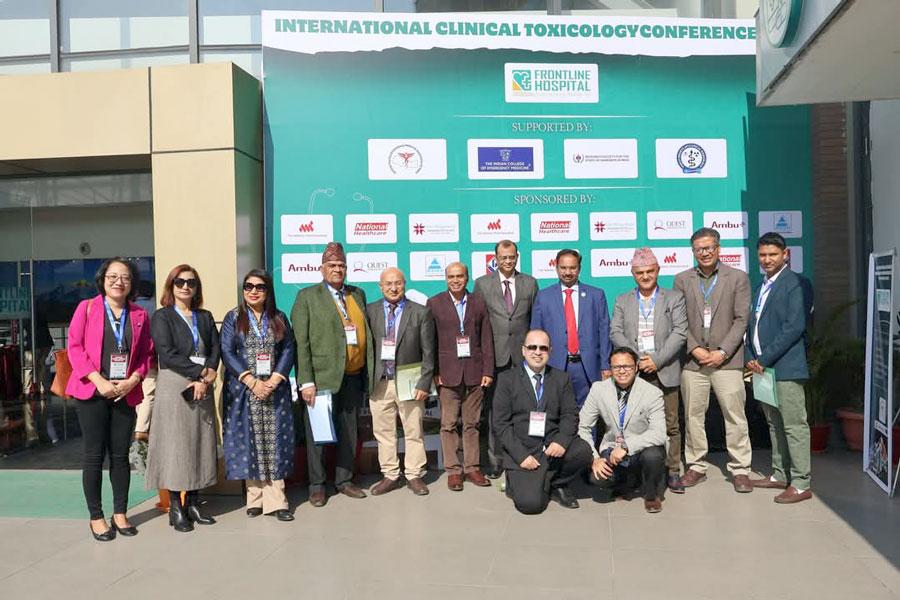Kathmandu : Frontline Hospital, in collaboration with the Indian Society of Clinical Toxicology (ISCT) and other esteemed institutions, successfully organized the International Clinical Toxicology Conference at its premises in Old Baneshwor, Kathmandu. The conference brought together top medical professionals, researchers, and clinicians from across the globe to discuss the latest advancements in clinical toxicology and toxicological case management.
The prestigious event, held on March 22, 2025, featured insightful keynote addresses, engaging panel discussions, and hands-on workshops led by renowned international and national experts in the field. The primary focus of the conference was to enhance toxicology management, address regional challenges, and provide healthcare professionals with updated treatment protocols.
The event witnessed the participation of leading toxicologists and emergency medicine specialists, including Dr. Narendra Nath Jena, President of ISCT, Dr. S. Senthil Kumaran, President of the Asia Oceanic Association for Medical Toxicology, and Dr. Debasis Das Adhikari, Vice President of the Pediatrics Emergency Medicine Chapter, IAP. Nepalese experts such as Dr. Olita Shilpakar, Dr. Rohan Jha, and Dr. Rakesh Ghimire also shared their expertise on managing poisoning cases and improving clinical toxicology practices in Nepal.
Discussions revolved around pesticide poisoning, snakebites, drug overdoses, and poison information centers, all of which are major concerns in Nepal. With pesticide poisoning accounting for 70% of cases and snakebites affecting 23-26% of the rural population, the conference played a crucial role in identifying effective treatment methods and enhancing emergency care strategies.
The conference also provided a platform for collaboration among toxicologists, physicians, nurses, pharmacists, and public health officials. Participants engaged in hands-on training sessions, gaining practical experience in diagnosing and managing poisoning cases. The interactive workshops were highly appreciated for their real-world applicability.

Dr. Rohan Jha, Medical Administrator of Frontline Hospital, expressed his gratitude to all attendees and highlighted the hospital’s commitment to advancing toxicology research and emergency medicine in Nepal. He emphasized the importance of establishing poison information centers to improve response time and reduce poisoning-related mortality rates.

With its successful execution and high participation, the International Clinical Toxicology Conference marked a significant milestone for Nepal’s healthcare sector. It reinforced the need for continued research, improved toxicology education, and stronger international collaboration to combat toxicological emergencies effectively.






Comments are closed.